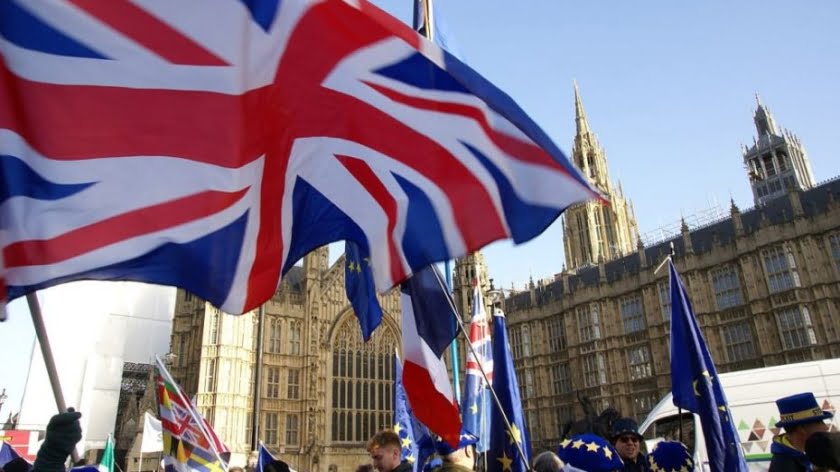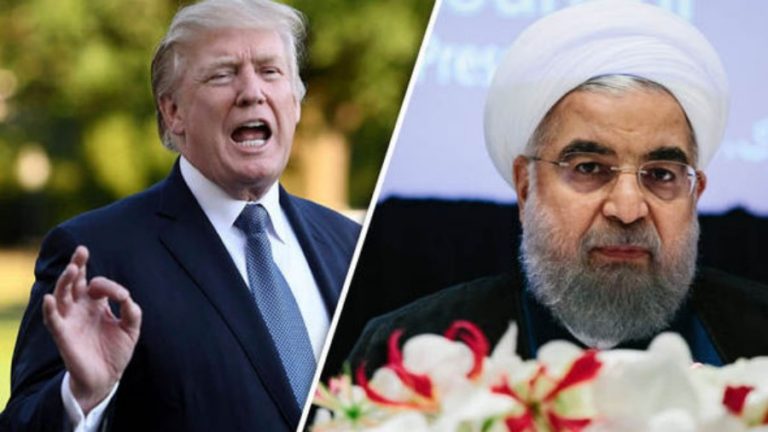Is Brexit a ‘Win-Win’ or a Lose All Round?
In March 2016 Boris Johnson, then Mayor of London, now prime minister of the United Kingdom, declared that after Britain left the European Union he considered that “the prospects are win-win for all of us.” In the ensuing four years there has been much debate concerning the advantages or otherwise of Brexit, as the pullout became known, and unfortunately not all discussion was courteous or constructive.
Indeed it can be said that far too often there were flat statements followed by flat contradictions followed by personal abuse. Many claims and counter-claims heightened tension between supporters and opponents of Brexit, and one result, unfortunately, has been what appears to be enduring polarisation of Britain. Countless assertions by various figures over the years were of a nature that appeared calculated to divide the population rather than to constructively inform people about alternatives that could be either beneficial or disadvantageous for them and the country as a whole. Those responsible for the discordant tenor of the Brexit debate were mainly prominent politicians who apparently considered that condescension and confrontation rather than mannerly dialogue would be more likely to win the day.
One prominent advocate of Brexit, a government minister named Michael Gove, announced in April 2016 that “The day after we vote to leave, we hold all the cards and we can choose the path we want”, but nobody has taken him to task about that patently misleading promise, and he is now engaged in planning for a no-deal outcome to negotiations with the European Union. The fact that nobody knows if there will be a “no-deal” is evidence enough that his stance was dubious, and it is understandable that there is substantial disapproval of his continuance in government. It is not the first time he has been wildly incorrect about important matters, with one of his most grotesque contentions being in 2008 that “The liberation of Iraq has actually been that rarest of things – a proper British foreign policy success. Next year, while the world goes into recession, Iraq is likely to enjoy 10% GDP growth. Alone in the Arab Middle East, it is now a fully functioning democracy with a free press, properly contested elections and an independent judiciary.” This and other erroneous pronouncements have not created widespread confidence in his assessments or conclusions.
In 2017 Gove was joined in his Brexit prophecies by Liam Fox, then minister for international trade, who was equally direct and erroneous when he promised the nation that “The free trade agreement that we will have to do with the European Union should be one of the easiest in human history.” It has been apparent for years that the EU has no intention of being walked over by any British government in discussing a bilateral trade agreement, and this was again highlighted and spelled out on February 3 by the EU’s chief negotiator, Michel Barnier, when he said the EU is prepared to offer a “highly ambitious trade deal as the central pillar of this partnership”, even to the extent of agreeing to zero tariffs and quotas — but only if the UK agrees to “specific and effective guarantees to ensure a level playing field” ensuring that there would be “open and fair” competition.
Barnier’s clear and mediatory approach was in contrast with the concurrent but regrettably uncompromising pronouncement by Prime Minister Johnson that “I see no need to bind ourselves to an agreement with the EU.” His message is that there is to be no flexibility on the part of the United Kingdom in its ongoing negotiations, which forces the EU to a position from which there appears to be small possibility of “win-win”, as so confidently predicted by Johnson during his Brexit Campaign. Britain can without doubt choose the path it wants, as indicated by Gove — but it most certainly does not have “all the cards” he imagines to be in the hands of the London government.
One of Johnson’s main points in negotiations about trade, which is by far the most important sector of the post-Brexit scenario, is that, as he said on February 3, “we want a free trade agreement, similar to Canada’s but in the very unlikely event that we do not succeed, then our trade will have to be based on our existing Withdrawal Agreement with the EU.” But he failed to mention that the EU-Canada trade agreement of 2016-17 took seven years to negotiate.
Further, if no agreement is reached about trade, then World Trade Organisation regulations will apply, and this means automatic imposition of customs duties, known more widely as ‘tariffs’, and establishment of hard borders with examination and bureaucratic processing of all goods passing through from both directions. Some of us experienced those for many years and know well that while such procedures provide employment for a great many inspectors, the time involved can be considerable — and economically sensitive.
Dr Anna Jerzewska is a trade policy consultant at British Chambers of Commerce and the International Trade Centre in Geneva, and a year ago the London School of Economics published some of her writing on this matter in which one of the most telling observations is that “According to the World Customs Organisation, an average cross-border transaction involves up to 30 different parties and around 40 documents with about 200 data elements, most of which need to be re-entered to several systems.”
Johnson’s overall attitude to the matter of trade was demonstrated by his answer to the BBC’s Laura Kuenssberg when she asked if he could accept that leaving the EU with no comprehensive trade deal could have significant cost for jobs and businesses. He ignored the substance of the question and replied simply that “We’ve got a deal, it’s a great deal, we’re out. When I hear prophecies of doom I’ve heard them before, I don’t believe in them” which sentiments, although obviously acceptable to that majority of Britons who elected him so resoundingly last December, can hardly be termed a basis for optimism or “win-win”.
Of major importance was the notification by the EU’s Michel Barnier that all goods imported by the EU will be required to comply with its rules on health and other standards, and he asked if the UK would “continue to adhere to Europe’s societal and regulatory model in the future or will it seek to diverge?”, pointing out that “the UK’s answer to this question will be fundamental.” Most unfortunately Johnson has made it clear that that Britain will not follow such EU statutes. The paths of the UK and Europe have diverged to the point where he is adamant that “There is no need for a free trade agreement to involve accepting EU rules on competition policy, subsidies, social protection, the environment, or anything similar.”
Johnson’s definition of “social protection” appears unlikely to include health standards and regulations concerning production methods (including, for example, the use of sweated labour), as accepted by the EU as a whole, but the biggest blow in the whole affair could well be against the ordinary Brits, the workers (and especially those aspiring to be workers), who believe that leaving the EU has broken a new dawn for their country. They believe what their prime minister has told them : that there will be a “win-win” for them and for the economic and social Union that they have quitted in controversy. For their sake we must hope that this will be so, but the signs are that it is more likely there will be ‘lose-lose’.
By Brian Cloughley
Source: Strategic Culture







